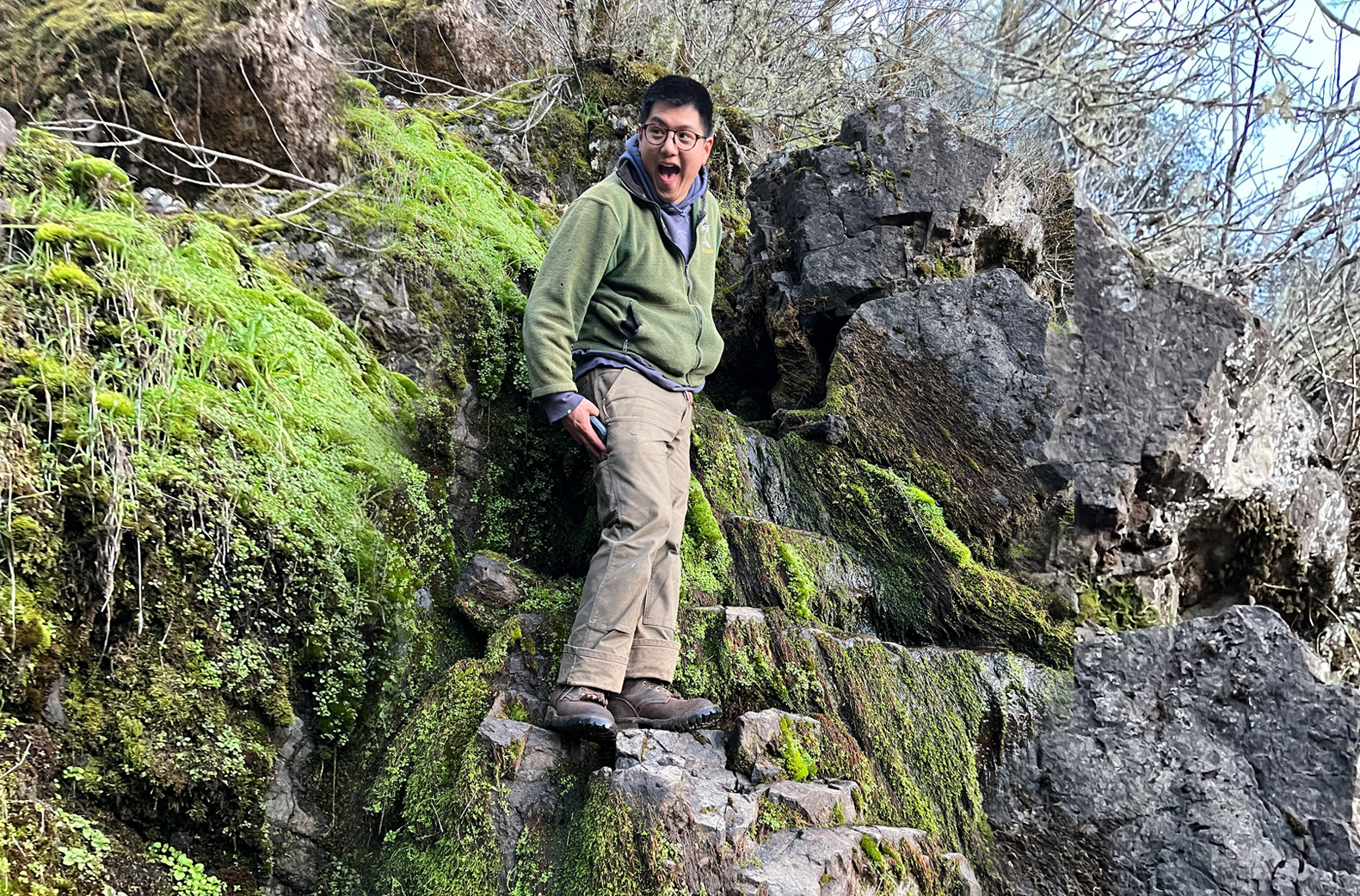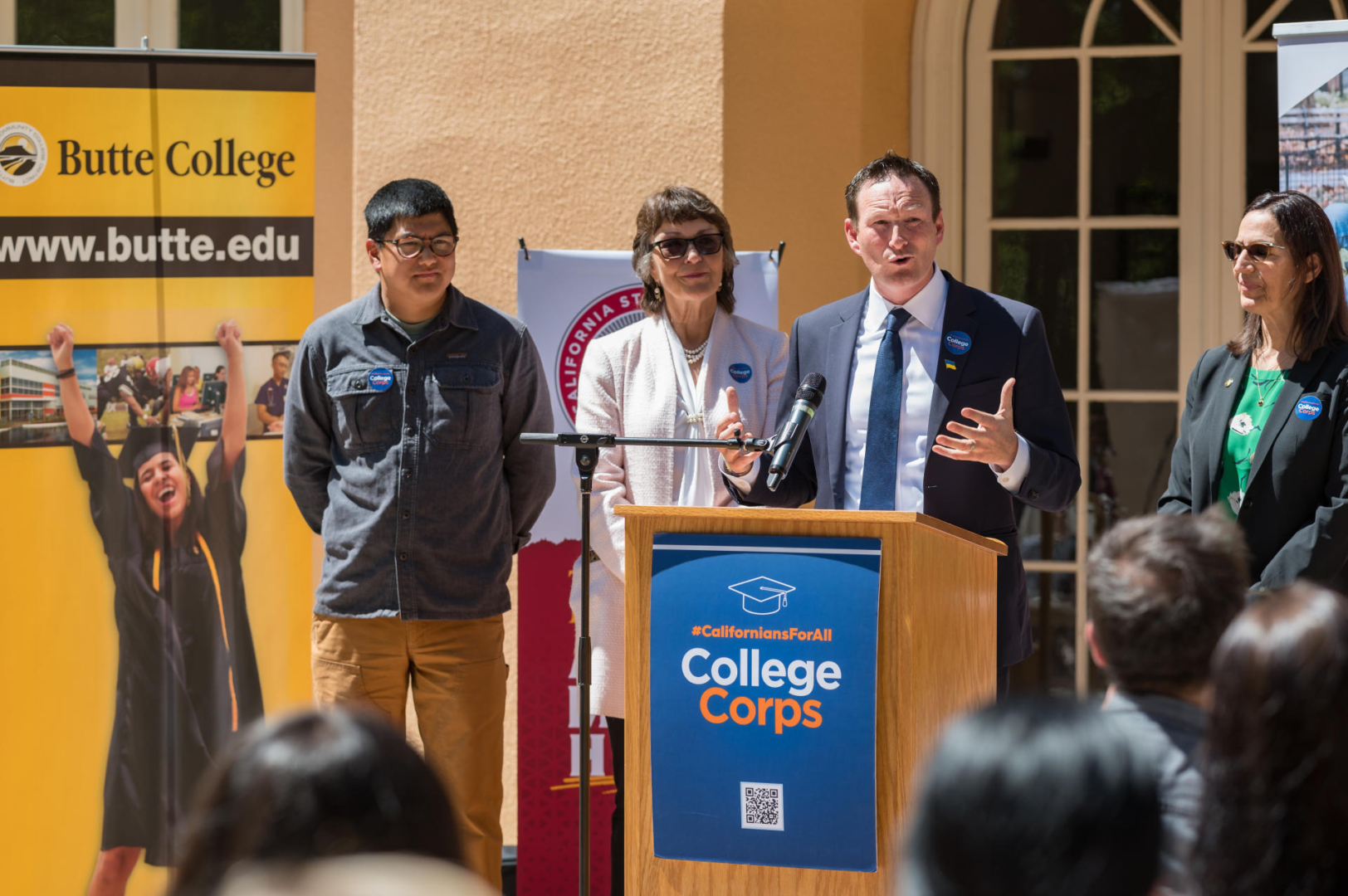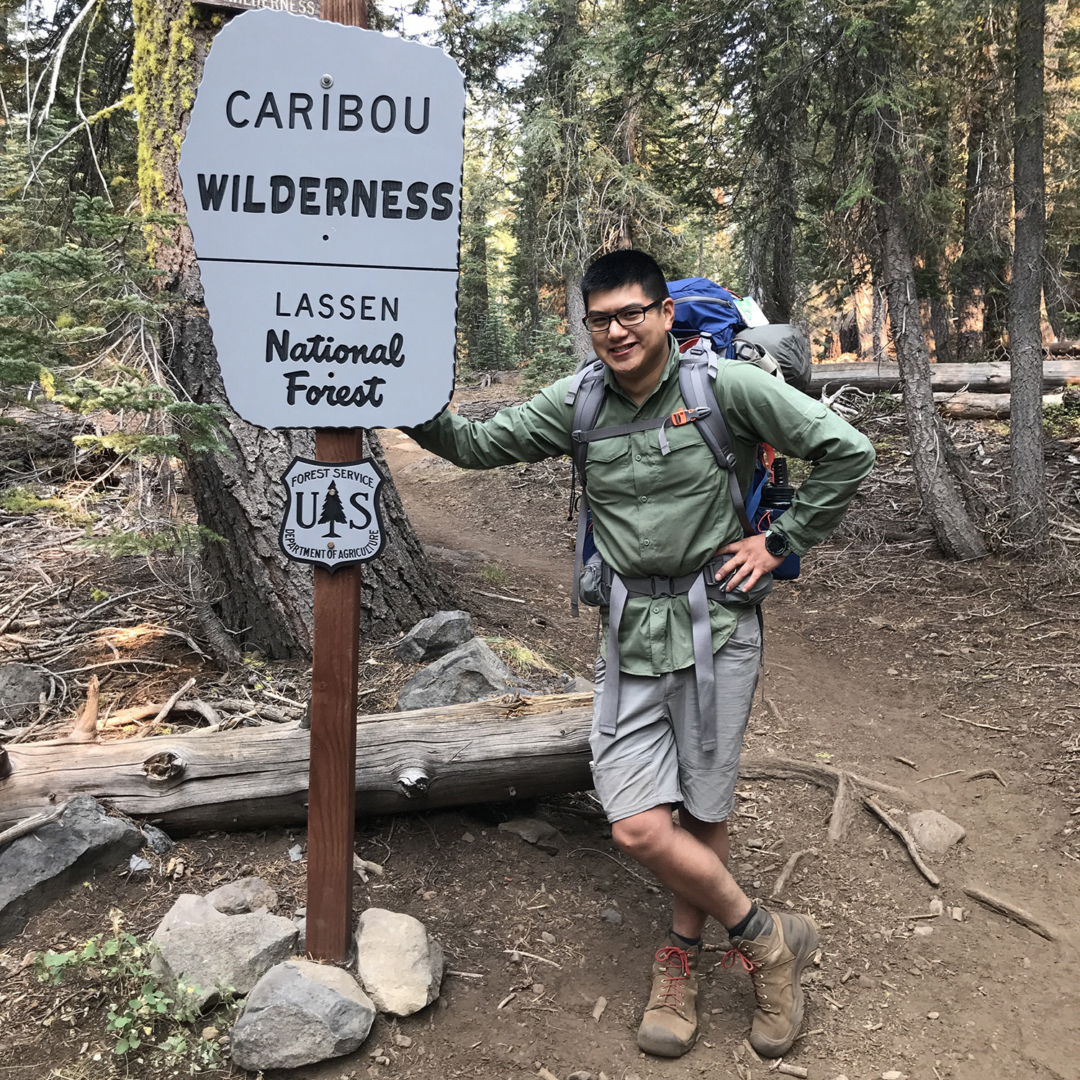Wildland Management Master’s Student Driven to Preserve Natural Spaces

Since 2006, Ben Chang has worked summers at Wente Scout Reservation, living and laboring among the majestic Douglas firs, redwoods, and madrones. He earned a reputation at the nationally accredited Boy Scouts of America camp as an excellent instructor and communicator through teaching rowing and sailing, and leading hours-long mountain bike rides.
Now the camp’s mountain biking area director, Chang (Recreation Administration, ’17) teaches campers how to design, create, and maintain mountain biking trail systems focusing on user experience. He also shares his deep love, care, and reverence for the outdoors—all of which have strengthened through so many seasons at Wente.
“I’ve always appreciated nature, but what fascinated me most about it was the sense of adventure and being out in places we didn’t create as human beings,” he said. “I like the idea that you can go to places with tall trees, fast rivers, or with rocks coming out of the ground.”
In recent years, he’s realized that enjoyment comes with a deep sense of responsibility.
A few years after Chang finished his bachelor’s degree, his beloved Wente camp five miles east of Willits nearly succumbed to the 2020 Walker Fire. Saved by last-minute shifting winds, the camp survived, but as additional catastrophic wildfires continue to ignite all around the West, Chang challenged himself to learn more about necessary action to battle climate change and prevent such future scenarios.
He subsequently enrolled in Chico State’s interdisciplinary wildlands management master’s degree program and today is learning all he can—both in the classroom and in the field. While being introduced to topics like environmental sociology and equity in the classroom, his experiential learning at the University’s Big Chico Creek Ecological Reserve has taught him the science behind wildfires, how logging without forest regeneration and fire practices have altered forest ecology, and measures humans can take to help reverse climate change.
Comparing climate change to a slow-moving, slow-sinking ship, Chang says climate action is an important first step to long-term change. As an inaugural California Climate Action Corps fellow, he is learning more about what humans can do to preserve the environment—and passing that knowledge and experience along to future generations.

“That program shows how people can be directly involved and hands-on with the environmental and social issue of climate change,” he said. “We can resolve this collectively if we start educating ourselves and acting on the educated decisions we make.”
His determination comes as no surprise to Emilyn Sheffield, professor in the Recreation, Hospitality, and Parks Management Department. Even as an undergraduate student Chang stood out as capable, resourceful, and adaptable—traits he has stoked at Wente and honed with the California Climate Action Corps, she said.
“He increased his skills in forest management and began seeking resources and opportunities to increase forest health and resilience at Wente,” she said. “He continues to teach others about time-tested and emerging forest practices.”
Chang is ceaselessly fascinated by nature’s nuances and the things he doesn’t understand yet.
“I love coming to these places and I’m still learning about them,” he said. “I think I have a deeper connection with natural places because I have a growing science background.”
He especially enjoys sharing the wonder of nature and helping others discover a deeper and more meaningful connection with wild places and forest ecology in ways that will inform the rest of their lives. Chang adds that enjoying the outdoors can at times be a tourist activity, but it can also be a lifestyle.
“How you choose to be in the outdoors can be a way for you to understand your impact on the environment,” he said. “Whatever that is for me, that is why I still gravitate toward natural places, why I put on fire boots and walk around in the woods.”

Chang is clear in his conviction, dogged in his determination, and resolute in his reasoning as to how and why climate action must happen. He is thoughtful about what he can realistically do to protect the preciousness of the natural environment.
“I’m not going to be famous and influential in a way that people will just listen to me,” he said. “So the most important thing I do, besides the actual work on the ground, is creating community and leading people who are literate in these issues in science and in understanding that they can in fact be the solution that they choose to be by being proactive and hands-on.”
He knows that he alone cannot save the environment, but he wants to be a change agent who teaches, inspires, and leads others so that they can go into the wildland workforce. Chang says this is a human-made problem, there must be a human-made solution.
“It’s really important that our future college graduates have an idea of what they think they can do,” he said. “I think the experiential learning one gets, especially and particularly through Chico State’s Wildland Management Program, is invaluable.”
It’s a daunting idea, but one Chang eagerly takes on to ensure that outdoor spaces, like Wente Scout Reservation and others, live on for years to come.
“Having informed citizens in 30 years is equally important as creating the next generation of land management professionals,” he said. “That’s something that I take a lot of pride in doing knowing that one person is not going to resolve this issue in one lifetime.”


